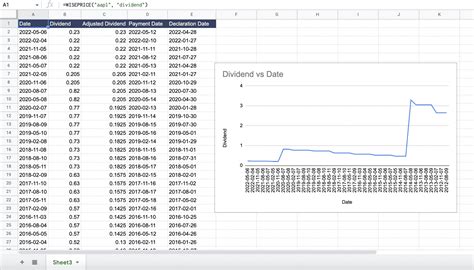For the first time in its storied history, Alphabet Inc. (Google) has announced a regular dividend payout to its shareholders, a move that has created a buzz in the financial and tech communities alike. This is a milestone for the tech giant, which has grown from a simple search engine to a global powerhouse across various sectors. The decision to introduce a dividend was likely bolstered by the company’s standout performance in the latest quarterly earnings report which showcased significant growth in key areas, albeit with substantial buybacks. This strategy not only enriches shareholders but also provides a steady income stream, attracting a new class of investors. The timing and announcement are crucial, coinciding with a period of intense scrutiny over the company’s future growth avenues and ongoing regulatory challenges.
The decision to initiate a dividend reflects a strategic pivot towards shareholder value and possibly a more mature phase of business growth. Traditionally, tech giants have shied away from dividends, focusing instead on reinvesting in innovation and aggressive expansion. However, this move by Google follows a trend seen with other tech leaders, notably Meta, who recently initiated their dividend payouts. It seems, with diminishing high-yield investment opportunities and massive cash reserves (reported over $100 billion), Google is opting to reward its shareholders directly. This move could be interpreted as a signal that the company sees fewer high-value investment opportunities, which is an aspect that resonates with some investor sentiments expressed during the earnings discussions.
One notable aspect of Google’s financial strategy is the simultaneous continuation of stock buybacks. During the announcement, the company also revealed plans to repurchase an additional $70 billion of its Class A and Class C shares. This dual approach of rewarding shareholders through dividends and buybacks is somewhat uncommon but not unprecedented. The election to execute both might suggest a balanced strategy aimed at managing the company’s substantial cash reserves effectively while maintaining control over its stock price. Stock buybacks are known for their potential to increase share value by reducing the number of shares in circulation, which in theory, makes existing shares more valuable.
The dividend announcement raises inevitable questions regarding Google’s future growth outlook. Paying dividends is often viewed in contrast to the tech sector’s typical preference for high-growth reinvestment. The nature of dividends suggests a more steady-state business, which could be a signal that Google is shifting its strategic focus from rapid expansion to maintaining and incrementally increasing a robust, already significant profit base. This transition could be a tactical response to the global economic environment, including changes in tax laws favoring dividends, or simply a natural evolution of a giant that has scaled as far, and as quickly, as it can in its core areas. Furthermore, the recent layoffs of approximately 10,000 employees add a layer of complexity, emphasizing cost-efficiency and profit maximization.
Wider industry implications of Google’s financial strategies are also noteworthy. Firstly, the introduction of dividends might set a norm for other tech giants, especially those with large cash reserves facing similar growth and market saturation challenges. Secondly, this move tests the waters for investor approval in a sector that traditionally eschews dividends. As other tech companies observe Google’s financial performance and shareholder reactions over the upcoming quarters, we might see a shift in how tech giants utilize their vast reserves, balancing growth investments with shareholder payouts. Lastly, Google’s approach underscores a significant turn in tech financial strategy, which could influence broader market dynamics, including investor expectations and competitive corporate behaviors.’]} In the broader context of economic pressures and intense competition, Google’s dual approach to shareholder rewards and its implications for the tech ecosystem will continue to be watched closely, as will its ability to maneuver through the challenges of market saturation and regulatory scrutiny.


Leave a Reply